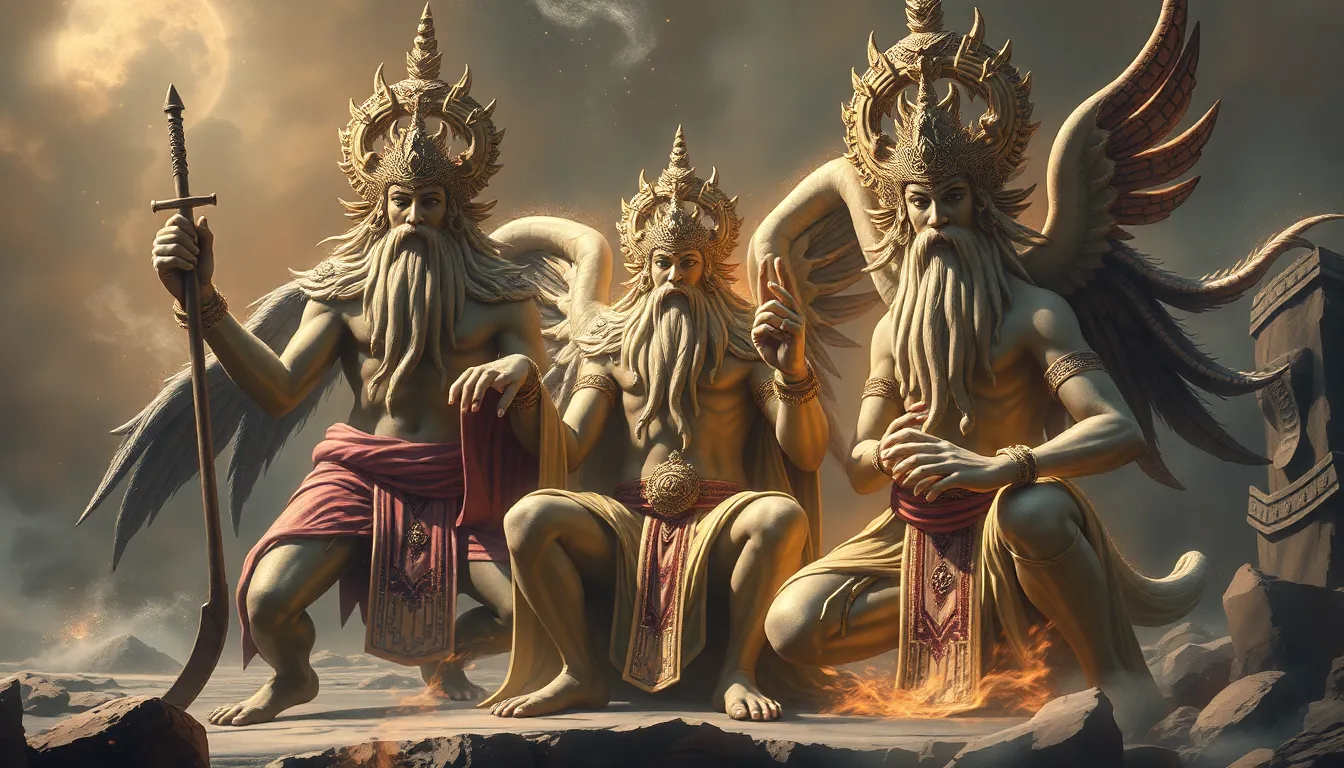The Myth of the Unwavering Faith: Morality in Belief
I. Introduction
Faith is often portrayed as a steadfast pillar in the lives of individuals, a powerful force that guides their decisions and actions. However, the concept of unwavering faith can be misleading. It suggests a rigidity in belief that may not account for the complexities of human morality. Understanding the interplay between belief and morality is crucial, especially in a world where convictions can lead to profound ethical dilemmas.
This article explores the intricate relationship between unwavering faith and moral frameworks. We will delve into the definitions and dimensions of faith, examine philosophical perspectives on morality, analyze historical figures with complex faith, and discuss the psychological implications of belief. We will also consider the role of doubt, the challenges of moral absolutism versus relativism, and contemporary issues that highlight these conflicts. Ultimately, we aim to build a moral framework that transcends unwavering faith.
II. Understanding Faith: Definitions and Dimensions
Faith can be understood in various contexts, each offering a unique perspective on its nature:
- Religious Faith: A firm belief in a higher power or divine principles, often accompanied by rituals and community practices.
- Secular Faith: Confidence in non-religious ideologies or humanistic principles, such as science or rationality.
- Personal Faith: Individual convictions that guide one’s life choices, which may or may not be tied to organized belief systems.
Faith encompasses emotional, intellectual, and volitional dimensions:
- Emotional Aspect: The feelings and attachments associated with belief.
- Intellectual Aspect: The cognitive processes involved in understanding and justifying one’s beliefs.
- Volitional Aspect: The choices and actions taken based on those beliefs.
Faith significantly influences moral decision-making, as individuals often rely on their beliefs to navigate ethical dilemmas. This influence can be both positive and negative, leading to compassionate actions or moral conflicts.
III. The Nature of Morality: Philosophical Perspectives
Moral philosophy provides various lenses through which to understand ethical behavior:
- Consequentialism: The morality of an action is judged by its outcomes.
- Deontology: Morality is grounded in rules and duties, regardless of the consequences.
- Virtue Ethics: Emphasizes the character of the moral agent rather than specific actions.
Cultural and social influences play a significant role in shaping moral beliefs, as different societies prioritize varying values and ethical standards. The intersection of faith and moral philosophy becomes apparent when considering how religious convictions can inform, and sometimes conflict with, philosophical ethical frameworks.
IV. Case Studies: Historical Figures with Complicated Faith
History is replete with individuals whose unwavering faith has led to morally ambiguous actions:
- Martin Luther: A key figure in the Protestant Reformation, he challenged the Catholic Church but also exhibited anti-Semitic views in his later writings.
- Thomas Jefferson: Advocated for religious freedom yet owned slaves, reflecting a contradiction between his Enlightenment ideals and personal practices.
- Mother Teresa: Revered for her humanitarian work, yet criticized for her views on suffering and the afterlife, which some argue conflicted with the well-being of her patients.
These contradictions raise questions about the implications of unwavering faith on societal norms and ethical standards. They highlight how individuals can simultaneously embody profound convictions while also perpetuating moral conflicts.
V. The Psychological Implications of Faith and Morality
The psychology of belief reveals how strong convictions can lead to cognitive dissonance, where one’s actions do not align with their beliefs. This often results in moral dilemmas, as individuals struggle to reconcile their faith with ethical behavior. Research suggests:
- People with strong beliefs may experience heightened stress when their actions contradict those beliefs.
- Cognitive dissonance can result in justifications for unethical behavior to maintain a self-image aligned with their faith.
- Faith can also enhance moral reasoning by providing a framework for ethical deliberation.
VI. The Role of Doubt in Moral Development
While unwavering faith is often seen as a strength, doubt plays a crucial role in moral development:
- Questioning Beliefs: Doubt encourages individuals to critically examine their beliefs, leading to personal growth and a deeper understanding of morality.
- Nuanced Morality: Engaging with doubt can foster a more flexible and contextual approach to ethical dilemmas.
- Moral Evolution: Many individuals report significant shifts in their moral views after grappling with their doubts.
For instance, prominent figures like Mahatma Gandhi and Nelson Mandela evolved their beliefs through periods of doubt, resulting in more inclusive and compassionate moral frameworks.
VII. Faith and Moral Absolutism vs. Moral Relativism
Moral absolutism posits that certain actions are universally right or wrong, while moral relativism suggests that morality is context-dependent. Unwavering faith can lead to:
- Rigid moral frameworks that dismiss alternative perspectives.
- Challenges posed by moral relativism that can undermine traditional beliefs and lead to ethical chaos.
This dichotomy often sparks debates within religious communities and philosophical circles, raising important questions about the universality of moral principles.
VIII. Contemporary Issues: Faith and Moral Choices in Society
In today’s world, the conflict between faith and morality is evident in various current events:
- Debates over abortion rights and reproductive health often reflect deep-seated religious beliefs.
- Discussions on LGBTQ+ rights reveal tensions between faith-driven morals and evolving societal norms.
- Political issues, such as immigration and social justice, are frequently framed through the lens of religious convictions.
Communities grappling with these faith-based moral decisions face the challenge of reconciling traditional beliefs with contemporary ethical demands.
IX. Building a Moral Framework Beyond Unwavering Faith
To navigate the complexities of morality in a diverse society, it is essential to explore secular sources of morality:
- Empathy: Understanding the feelings and experiences of others can inform moral decisions.
- Reason: Logical deliberation encourages critical thinking about ethical dilemmas.
- Dialogue: Open discussions about differing beliefs can foster mutual understanding and respect.
This exploration can lead to the development of a moral framework that is inclusive, flexible, and responsive to the needs of a diverse society, moving beyond the limitations of unwavering faith.



